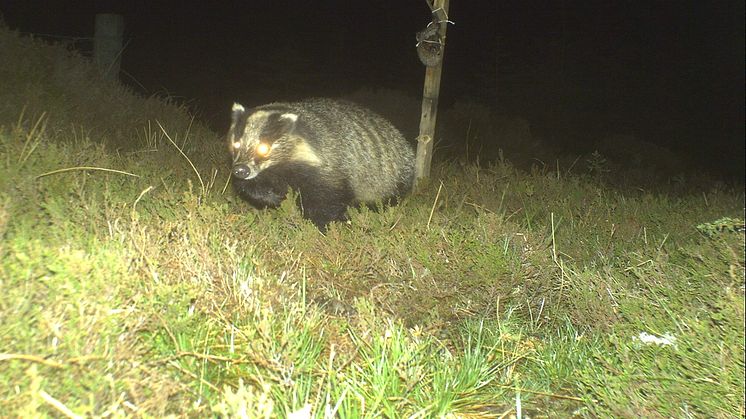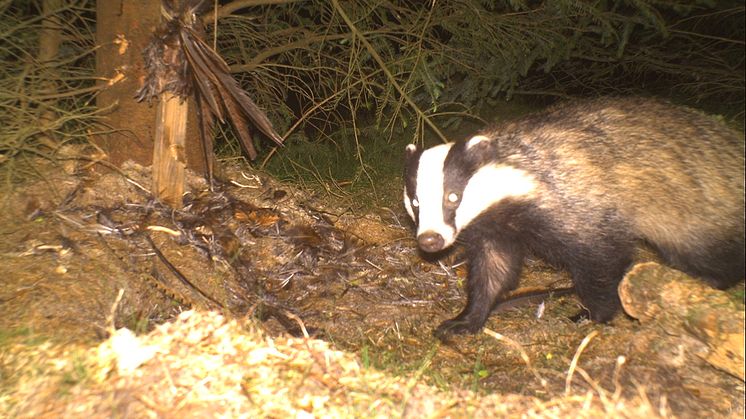Press release -
Scottish badgers highlight the complexity of species responses to environmental change
In a new study researchers have found that although warmer weather should benefit badger populations, the predicted human population increase in the Scottish highlands is likely to disturb badgers and counteract that effect. These results emphasise the importance of interactive effects and context-dependent responses when planning conservation management under human-induced rapid environmental change.
The new findings, published in the scientific journal Diversity and Distributions, result from a collaboration between researchers from Uppsala University in Sweden and Oxford’s Wildlife Conservation Research Unit. Building on data from 168 camera trap stations actually collected originally to look at Scottish wildcat distributions, the team was also able to detect local badger (Meles meles) presence and absence. They found that different factors, such as weather conditions, land cover type and human disturbance interact to determine which locations badgers choose to populate across the Scottish Highlands.
Overall, badger occupancy was more likely at sites with higher minimum winter temperature and lower elevation. But when study areas of similar temperature and elevation were grouped together, more complex patterns emerged. Specifically, in less favourable cooler upland areas badger occupancy was associated with higher availability of agricultural patches, possibly due to the additional food resources they provide. This pattern was, however, not found in warmer lowland areas. These lowland areas typically provide more favourable foraging conditions, but also include more human infrastructures (farms, roads, villages, etc) that constrained badger occurrence; badgers were more often found further away from settlements and roads.
While medium estimates of a 1–3°C increase in mean minimum winter temperature for Northern Scotland by the 2050s would lead to better conditions for badgers in Highland Scotland, forecasts based on this factor alone are likely to prove simplistic and naïve. Disturbances associated with a predicted parallel 5% increase in human population in the Scottish Highlands by 2037 may counteract the benefits of increasing temperatures.
It may therefore prove faulty or superficial to assume that species will simply benefit from warming conditions along the former cold-edge of their distribution if other environmental factors are not considered.
-----
The study was led by André Silva and Gonçalo Curveira-Santos from Uppsala University and University of Lisbon, in collaboration with WildCRU (Oxford University) and the University of Aveiro.
For more information, please contact André P. Silva, doctoral student at Uppsala University, tel.: + 46 18 471 2930, email: andre.silva@ebc.uu.se or Gonçalo Curveira-Santos goncalo-cs@hotmail.com
Silva A.P. et al. 2017. Climate and anthropogenic factors determine site occupancy in Scotland's Northern-range badger population: implications of context-dependent responses under environmental change. Diversity and Distributions. DOI. 10.1111/ddi.12564
Topics
Uppsala University -- quality, knowledge, and creativity since 1477
World-class research and outstanding education of global benefit to society, business, and culture.
Uppsala University is one of northern Europe's highest ranked academic institutions. www.uu.se



